Kia ora koutou and happy New Zealand Social Workers’ Day for the 25th of September.
E kimi anai ngā kāwai I toro kitawhiti – seeking the shoots that stretch far out.
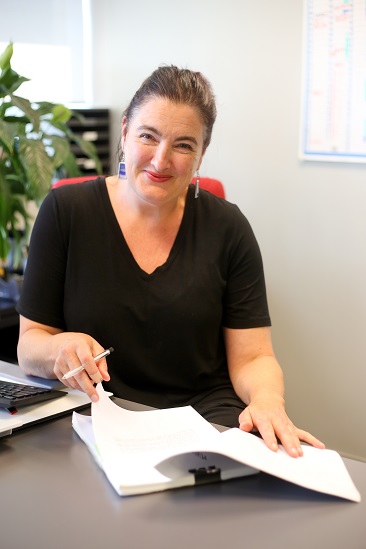
When thinking about this newsletter, I was reflecting about what I’ve learnt about the complex and diverse profession that is social work and the amazing people I’ve met. There is no such thing as one type of social worker, and the breadth of environments where you find social workers is incredible.
These are exciting and challenging times for the profession as we move towards a mandatory environment that will see the title “social worker” protected, meaning that everyone describing themselves as a social worker will need to be registered. The big opportunity of the legislation is in building and reinforcing the sense of professional identity and strength that comes from being part of a profession.
We know social workers whether on the frontline, or in management or policy roles, face challenging and complex issues every day. This is a profession that is committed to working with people, whānau and communities to find their own solutions, challenging social conditions by promoting social justice, human rights, collective responsibility, and respect for diversity. Your hard work, and the wide range of skills and knowledge you bring makes a huge difference in people’s lives. We want to take the time to acknowledge that – and thank you for your hard work and professionalism.
You may already know that we have social workers at the SWRB, both as members of the Board and working in the office (secretariat). They too have been thinking about professionalism and rangatiratanga; why it’s so important to be registered, and how the shift to mandatory registration will help the development of a fully professional workforce. You can read what they have to say in this issue and we would welcome your thoughts too.
Ngā mihi nui for your contribution to the strong professional practice of social work that goes on every day in our communities, and the contribution you make, every day.
Sarah Clark, Chief Executive SWRB
SWRB changes
You will have noticed the SWRB has made some changes to the newsletter and the website.
We have stayed true to the kaupapa of the original logo – which was representative of a wave of change, but updated it and moved closer to the colours which reflect that.
You will also find a video, which is a collaboration between the SWRB and ANZASW, with a short overview about the shift to mandatory registration. That’s on the SWRB website’s home page: swrb.govt.nz.
Rangatiratanga and professional autonomy
An emerging theme in our conversations with other social workers has been about professionalism, professional autonomy, and rangatiratanga.
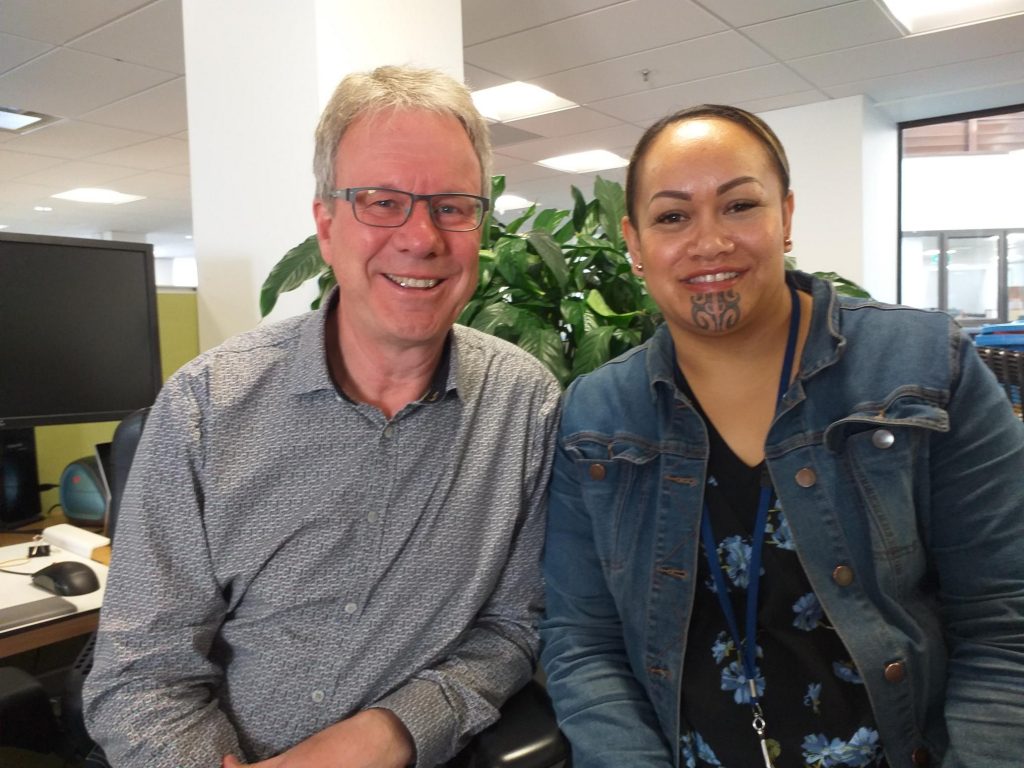
At the heart of professionalism is professional autonomy or what we might term rangatiratanga, ie self-determination, decision making and leadership. It also accommodates mātātoa which is about being fearless, speaking out, and acting with moral courage.
With professional autonomy comes the obligation to ensure our voice is heard alongside our professional colleagues such as lawyers, doctors, or nurses, and take our rightful place at the decision-making table.
The challenge for our profession is how we step into that space, how we claim rangatiratanga and exercise mātātoa, be it advocating for the wishes of a whānau in a medical setting, or supporting a woman to leave her violent and controlling partner in the context of Family Court proceedings.
The way we choose to do that will strengthen the level of professionalism we bring as social workers to the decision-making process.
Andrew Thompson (Principal Advisor) and Patsy Kainuku (Senior Māori Advisor)
Indigenous voices in social work
Aotearoa’s representation at the 5th Indigenous Voices in Social Work conference in Hualien, Taiwan was the largest outside the Taiwanese indigenous community, with about 15 New Zealanders attending.
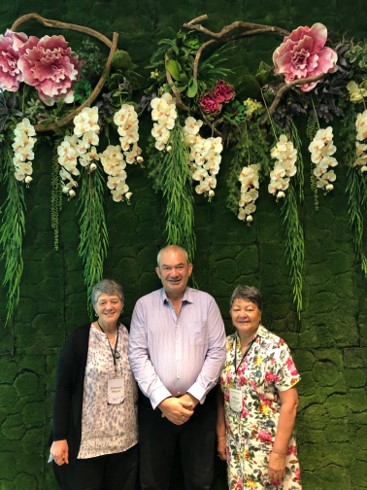
Presentations from across the international indigenous social work sectors embedded the necessity for indigenous knowledges and practices to be accepted at practice, policy and legislative levels in all countries in order to see the negative indigenous client statistics, being reversed
The previous conferences were held in Makaha Hawaii; Winnipeg Canada; Darwin Australia; and Alta Norway.
It was a privilege to see three SWRB Chairs in attendance, acknowledging the importance of this kaupapa.
Robyn Corrigan, inaugural SWRB Board chair (on the right of the photo, pictured with current chair Shannon Pakura and former chair Shayne Walker.)
Why being registered is important
There is a group of social workers (pictured below) who work at the SWRB secretariat (office) and they’ve been discussing why being registered is so important. A common thread throughout has been that registration provides a sense of professional identity, allows social workers to be unified and builds strength in the profession. Their reflections are below and we’d like to hear from you too about why you believe it’s important as we begin an information campaign to let all social workers know they need to become registered.
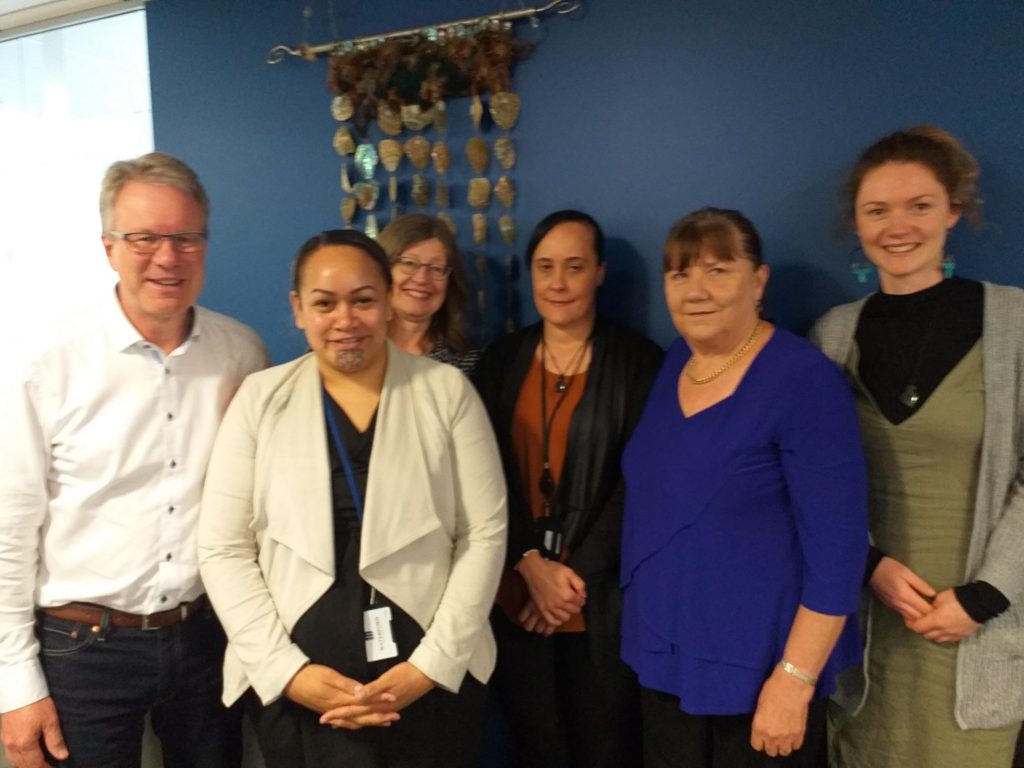
(L to R) Andrew Thompson, Patsy Kainuku, Diane Garrett, Rachel Koha, Jan Duke and Jessie Weber-Sparrow
Social work registration is important to me as it provides us with a professional identity. This allows us to stand together as a collective in our profession, and to advocate for positive change in the systems we live and work in.
Having a registration process upholds the integrity of the profession and the quality of our practice.
Come November, I am really looking forward to applying for registration and calling myself a social worker. I hope with mandatory registration the public will start to gain an understanding and appreciation of the amazing work social workers do every day.
Keep up the great mahi. Happy Social Workers day!
Jessie Weber-Sparrow (graduating social work student)
I have supported the ongoing project for registration of social workers since the first Board was appointed in 2003.
I started my professional working life in a regulated profession as a registered nurse in 1972. Being registered then provided my clients with a level of assurance that I was qualified and competent and that they had an avenue to seek redress if my practice fell below what was expected.
As registered social worker 9, I believe that registration for all professions working with those in society who are in need of assistance and support, should be registered for the same reasons. Coming initially from a health background it was obvious that other regulated professionals in a multi-disciplinary team did not have the same respect and confidence in social workers while social work remained unregulated.Registration has changed this perception.
A concern within the health and social services sector is the assumption many clients make that all social workers are currently registered. Mandatory registration will make this unambiguous.
Jan Duke – Chief Advisor
Social workers work with the most vulnerable people in society and I believe our clients deserve to be working with accountable professionals.
Mandatory registration gives me pride in our profession as it puts the profession on a level footing with other regulated professions.
Rachel Koha, Registration Manager
To me, being a registered social worker means being recognised as having a professional contribution to make to whānau, communities, and other social workers.
It provides me with a sense of shared identity, values, and pride in good social work practice alongside all the other registered social workers in Aotearoa, and that together we will stand by and grow our profession.
Diane Garrett, Principal Policy Advisor
Social work registration is important to me because it recognises the rangatiratanga of the social work profession.
It recongises that social work has its own professional autonomy, that it is self-detemining and that it holds its own mana alongside other professions.
Social work registration provides accountability, to ourselves as social workers, to the people we manaki and to the profession itself. For me accountability is about ensuring that we, as social workers, are tika and pono in what we do.
Nā Patsy Kainuku, Senior Māori Advisor
I am proud to be a registered social worker and liken it to putting-on a korowai (fine flax cloak).
The korowai, which was everyday clothing, has now become a taonga. You will see it at graduation ceremonies, significant events, and in its most treasured form the kahu huruhuru is intricately woven with fine bird feathers.
Our professional status has taken years to achieve, interwoven through the endeavours of the social workers who have come before us, people like Merv Hancock, and secondly through our own experience, training and qualification.
Our registration is a taonga that I wear with great pride and it unites our profession.
Andrew Thompson, Principal Advisor Social Work
Social work research bibliography
There has been a lot of research on social work education in New Zealand, and now you can find it pulled together into one, easy source.
The Council for Social Work Education in Aotearora New Zealand (CSWEANZ) has published a bibliography of books, book chapters and peer-reviewed articles of research on social work education in Aotearoa New Zealand since 2010.
It includes research such as ‘Breaking free of the neoliberal paradigm: refocusing the lens for social work..’, “It’s a whole orchestra: what are the instrumental elements in quality field education?” and “Decolonising social work education in Aotearoa..”.
Intended to act as a resource for researchers, educators and others with an interest in social work education, the bibliography includes over 120 items with links to the journal source where abstracts can be viewed. If the article or chapter is open access, a link is included to the complete text.
CSWEANZ plans to add items to the bibliography as new texts are published. The bibliography can be accessed at: http://csweanz.ac.nz/bibliography/
Meet Eskedar – registration officer
Eskedar is one of the friendly voices you will hear when you call the SWRB and have a question about applying to become registered:
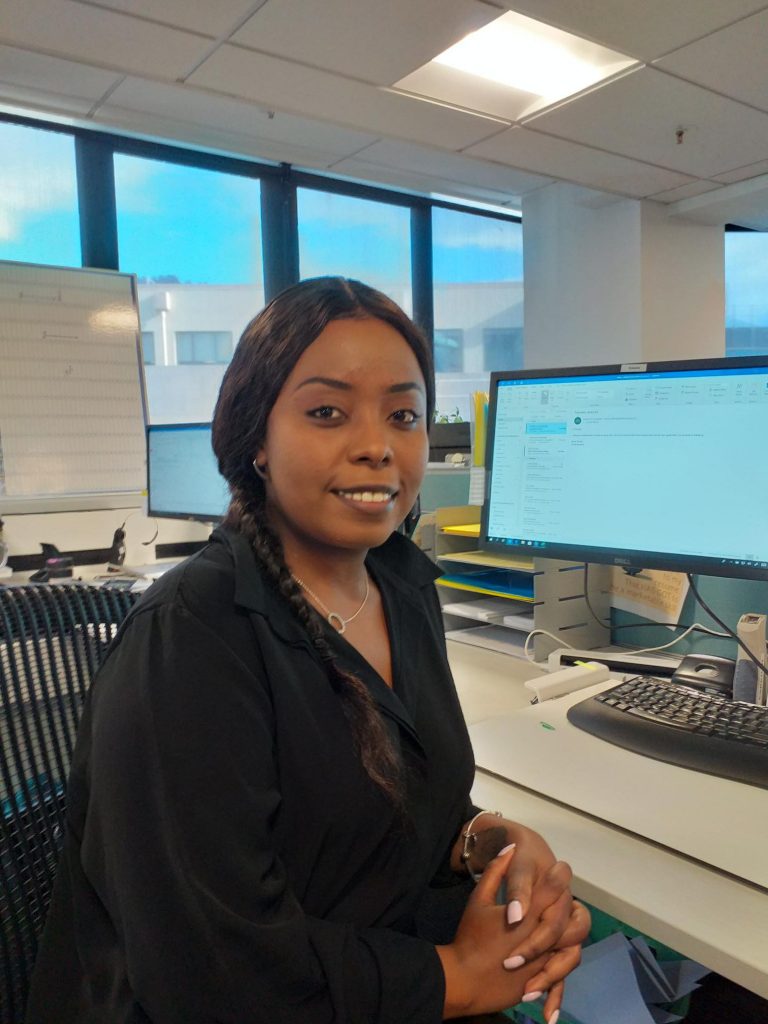
Kia ora, my name is Eskedar. I am originally from Ethiopia and I have been in New Zealand for 8 years. I have recently completed a Bachelor of Commerce, majoring in Accounting, Commercial Law, and Management.
I work for the Social Workers Registration Board as a registration officer. In this role, I get to work alongside many social workers from different walks of life as well as members of the public.
I really enjoy my job and watching the legislative changes moving from a voluntary realm to a mandatory environment.
In my free time I love getting out and about exploring New Zealand and the wonders it holds.
Putting the local back in local government
You may be interested in a conference being held in April next year: the Australasia Pacific Regional Commuity Development Conference is on from 20 to22 April in Northland.
It’s about Community Development: Putting the local back in Local Government
The venue is NorthTec Raumanga Campus, Whangārei, Northland with field trips to Kerikeri and Kaitaia. Contact Michelle Lee on: 64 9 470 3783 or email – mlee@northtec.ac.nz.
Contact us
You can contact the SWRB by emailing us on: office@swrb.govt.nz or calling 0508 797 269. If you have questions about registration, please email us on info@swrb.govtg.nz.

